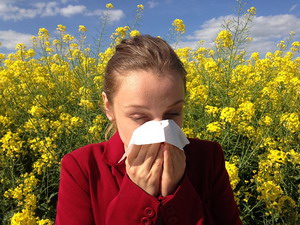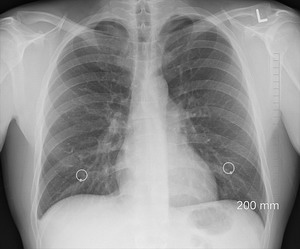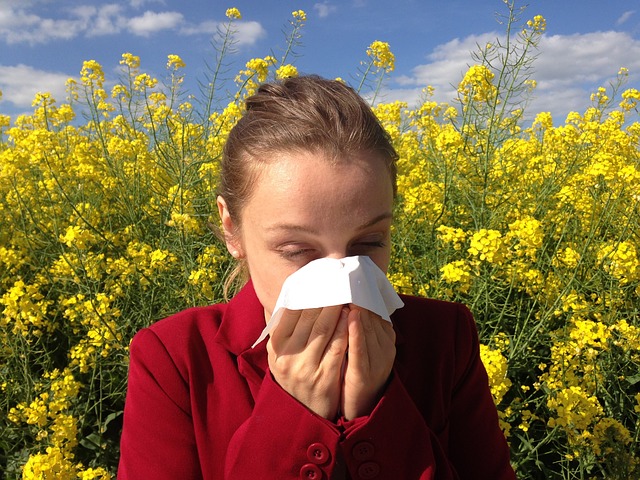
Allergies and sensitivities are amazingly common and yet from a medical viewpoint so little is known about why we get them. There is a very clear understanding of what happens during the allergic response on a cellular level, but why it happens seems to be a question no one is asking. Why would your immune system suddenly decide one day that it will no longer tolerate some substance that it has been fine with since you were born? I am going to postulate some mechanisms that might explain this mysterious process and what we can do to help it.

First let’s make a point of clarification between allergies and sensitivities. As far as you the patient is concerned they are the same thing. But from a medical perspective, allergies are tied to one specific immune pathway involving the formation of one particular immunoglobulin – IgE. Why is that important? Because IgE can cause life-threatening anaphylaxis, where your throat swells up and you stop breathing. This reaction has spawned a whole specialty in medicine called allergy doctors. Doctors cluster around solving things that might kill you and use medicines that are very powerful toward stopping your death. Sensitivities involve all the same immune mechanisms except that they generate other less deadly immunoglobulins like IgA, IgG, IgM, and so on. These generate all sorts of health issues that you as a patient don’t want, but doctors will tell you that you do not have allergies because you do not have the IgE type reaction. They don’t deal with sensitivities, only “true” allergies. It is as though if what you have is not going to kill you then they are not interested. The answer they give is to go home and take an over-the-counter medication.
Okay, first off you can develop reactions to things at any age – it is not just a childhood thing. There does seem to be a genetic component as you are more likely to have allergy problems if your parents have problems. That says there are genes that make your immune system more primed to over-react to things. But there is the other half to this puzzle. What triggers this reaction? It is usually not there at birth, though some studies do show babies born with reactions to things the mother was exposed to while carrying the child in her womb.

The two organs that carry most of the load of dealing with our interface with the outside world are the digestive tract and the lungs. They have to decide what to let into our body and what to keep out. That decision process is run by our immune system. Certain immune cells constantly sample what is in our gut and lung spaces and telling our system how to respond to what is there. Is what is there a friend or an enemy? Some of this decision process is built into us from birth (our innate immune system) and some is learned over time (our adaptive immune system). Allergies and sensitivities are all about errors in the functioning of this system. This system is hugely complex and very finely tuned because of the immense number of decisions it has to make and keep track of – all without you being aware of it. But that is just the tip of the iceberg as they say.

The immune system is just a part of a much larger control system. It is tied into our hormonal system, our nervous system, and our mental/emotional processing system. Special researchers called psychoneuroimmunologists have been unraveling this complexity over the last 20 years or so. That means that any dysfunction or imbalance in any of these systems affects all the rest. Stress, fear, excitement, hormonal imbalance, nervous system processing or communication issues, brain stem imbalances, toxic exposures, and chemical imbalances are the sorts of things that can throw the immune system into overreaction mode. This is where we have to look to truly understand allergies and sensitivity reactions. These are very holistic system integration issues which can not be understood from the perspective of viewing the body through various specialties.

Another key understanding is how closely the lungs, gut, and brain barrier function together. If one system starts to fail, they all begin to fail. If your lungs have to deal with polluted air and begin to get damaged, your gut gets leaky and the blood-brain barrier starts to fail. If you eat foods that inflame your gut, it affects your lungs and brain. They all work together. Any breach in the integrity of these systems that allows foreign and dangerous substances to get into the bloodstream triggers an immediate immune response. The immune system jumps into protection mode to fight off the perceived invaders. It also learns to recognize these “invaders” even faster in the future. This happens even when the substances are actually harmless, but they just don’t belong in the bloodstream. The gut barrier or lung barrier is supposed to keep them out. This is the essence of an allergy or sensitivity reaction – the immune system trying to kick out things that don’t belong inside our body. It tries to stop the inflow with inflammation which results in redness and swelling, mucus secretions, tears, diarrhea, and anything else to push out what does not belong. The chemical messengers of inflammation, called cytokines and histamine, create the pain and other reactions we hate so much.
Once we have a reaction, most of us want to know how to settle it down. Medication wise this usually means anti-histamine drugs. A number of natural herbs and extracts are also anti-histamines. The most powerful ones I know are:

quercetin
bromelain
turmeric/ginger
stinging nettle
butterbur
watercressThese are all available singly or in combinations from lots of companies for systemic treatment. Also very valuable is washing the sinuses with something like a neti pot or the NeilMed sinus rinser. A simple saline solution can be used or something more powerful like my sinus rinse blend. It also kills the bacteria and fungus that complicates sinus issues so often. Once we have a reaction, symptom management is about all we can do at that point.
A new approach for quick relief from allergic symptoms told to me by one of my patients is quail egg powder. I checked the research and it really works. There have been several studies on quail eggs for several types of

allergic symptoms and it dies an excellent job. Raw quail eggs also work, 4-5 a day, but they have to be taken on an empty stomach with no food for 4 hours after ingestion. Tablets are much easier and are reported to work in 15 minutes.
Can we do something to prevent the dreaded reaction in the first place? As I mentioned, reactions involve many systems in our bodies. Consequently, there are many ways to interrupt the cascade of events that lead up to a reaction. I mentioned that stress, both acute and chronic, can trigger immune system imbalances. Very often the reason there is a reaction is because our immune system has labeled a harmless substance as an enemy. This often happens because our system is already in an alarm state when we are exposed the first time. This frequently happens when our blood sugar balance is out of balance. Every time our blood sugar takes a dip, our system goes into fight or flight level stress. I have found that if we can expose ourselves to a triggering substance while at the same time put the nervous system into a state of ease, the reaction will settle down and stay settled down in the future. It is like teaching our system that this substance is not an enemy. We re-associate it with feelings of ease. This is very similar to how we can treat PTSD.


How might this look? I would use a method to stimulate the parasympathetic nerve tone, such as the Basic Atlas Reset (see here), or a binaural vagus nerve stimulation audio (see here) while exposing my patient to the offending substance for 2 to 3 minutes. If my patient reacts to Oak pollen, then I’ll have them gather some pollen with a tissue from their car window. Then I’ll have them sit down with it and do the Atlas Reset or listen to the audio with headphones. If it is a food sensitivity, then I’ll place a tiny bit of the food on your tongue and do the reset or have you listen to the audio. The receptors in your nose and tongue will tell your body the triggering substance is about to enter your body while the procedures will induce a state of ease, creating a new association with the substance. The degree of improvement will depend on how much the various different aspects of the whole system are involved in the reaction response. Obviously this will not make something poisonous okay. But it does do a wonderful job with turning things that are normally harmless back into that harmless state.
Have fun with this easy tool.
Take care,
David
